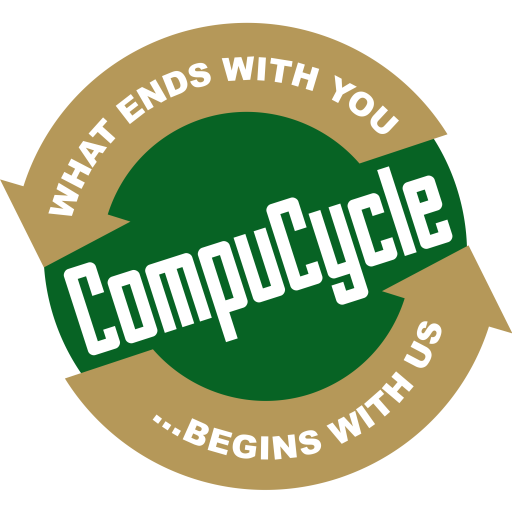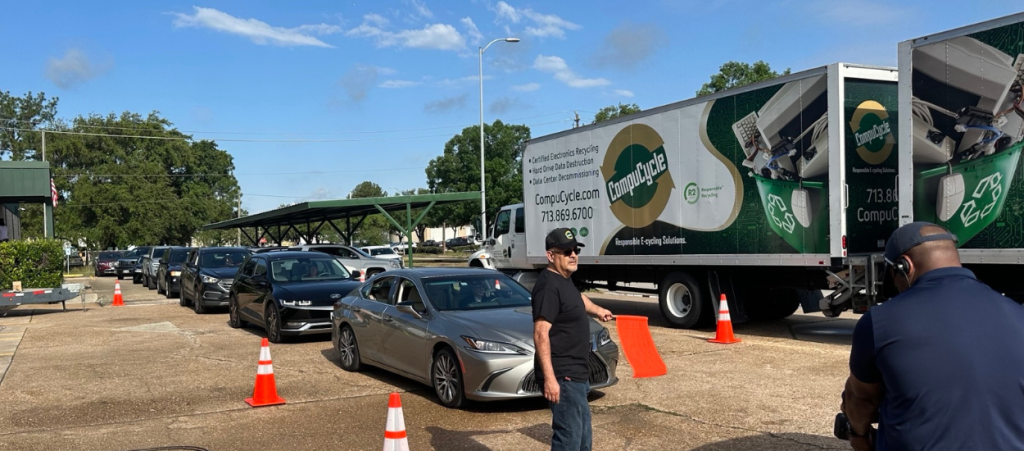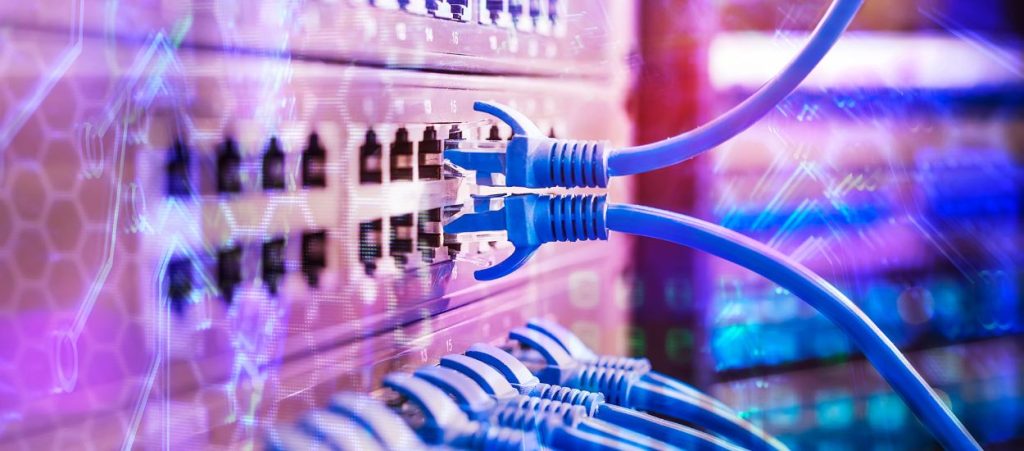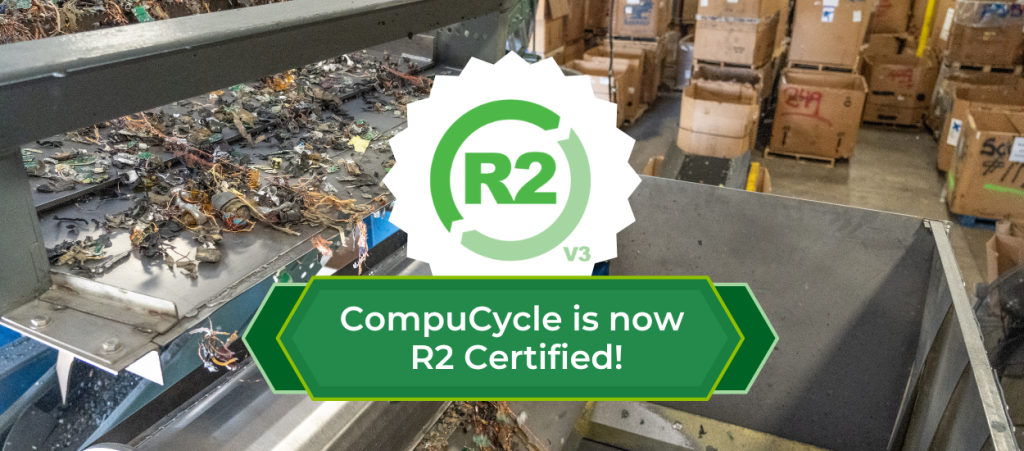
The significance of a used hard drive goes way beyond its purchase value. A company’s sensitive and confidential data stored on it needs to be kept away from the reach of unauthorized hands, or the business can suffer considerable and irreparable damage. The only way to mitigate the risks of data breaches and identity theft is the physical destruction of hard drives through a certified and expert hard drive destruction service.
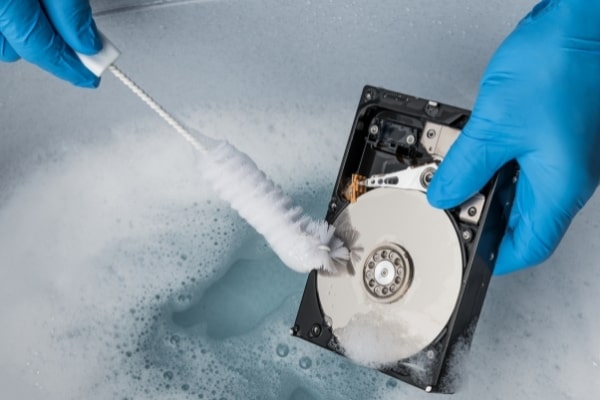
What Is Hard Drive Destruction?
Hard drive destruction is the process of making a hard drive unusable, unreadable, or otherwise inaccessible. Hard drive destruction is often used to protect data from being accessed by unauthorized individuals, as well as to ensure that sensitive data is properly disposed.
There are a variety of methods that can be used to destroy a hard drive, including physical destruction, degaussing, and data erasure. Physical destruction involves physically damaging the hard drive so that it cannot be used again. This can be done by crushing the hard drive, drilling holes through it, or burning it. Degaussing involves using a strong magnetic field to erase the data on the hard drive. However, shredding it with a specialized shredder is the best way to go about it.
Data erasure involves sanitization which means overwriting the data on the hard drive with random data, making it impossible to recover the original data. When it comes to hard drive data destruction, there are a few things you need to take into consideration. First is the safety of your data. You don’t want to accidentally delete or destroy something that you need later down the road. Secondly, you need to make sure that the hard drive data destruction process is effective. There are a lot of ways to destroy hard drives, but not all of them are created equal. Finally, you need to consider the environmental impact of your hard drive data destruction method.
The Importance of Safe Hard Drive Data Destruction
When it comes to hard drive destruction, there are several compelling reasons why businesses need to ensure that their hard drives are properly and securely destroyed. Here are just a few of the most important ones:
To Protect Sensitive Data
One of the most important reasons for businesses to destroy their hard drives is to protect any sensitive data that may be stored on them. If hard drives are thrown away in the trash or handed over to a non-certified hard drive destruction service, there is a risk that this data could fall into the wrong hands and be used maliciously.
To Comply with Regulations
In many industries, there are strict regulations surrounding the handling and disposal of confidential data. To ensure compliance with these regulations, businesses need to destroy their hard drives in a way that meets the relevant hard drive destruction standards.
To Prevent Data Breaches
Data breaches can be extremely costly for businesses, both in terms of financial damage and reputational damage. By destroying hard drives, businesses can drastically reduce the risk of a data breach occurring.
To Protect Trade Secrets
If a business has any trade secrets or other confidential information stored on its hard drives, it is vital that this information is kept safe and secure. Hard drive destruction is one of the best ways to ensure that trade secrets are protected.
How to Dispose of a Hard Drive?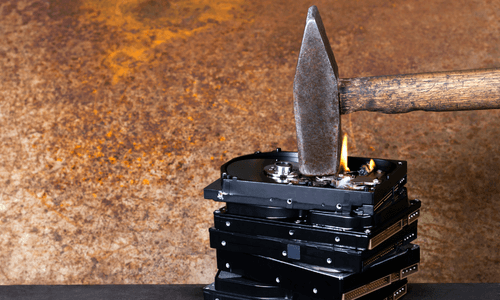
There are a lot of ways to delete data, but not all of them are permanent. For example, when you remove a file on your computer, it doesn’t get erased from your hard drive; it just gets moved to a different location where it can be easily recovered by someone with the right software. If you want to make sure that your data is truly gone, you need to use a method like physical destruction or secure data sanitization.
Physical destruction is the best way to destroy a hard drive completely. This can be done in several ways, but the most effective way is to shred it. This is where specialized hard drive shredders come in. They use powerful blades to cut the hard drive into tiny pieces, making it impossible to put it back together and extract any data from it.
Where Can I Destroy My Hard Drive?
If you are wondering where to shred hard drives securely, CompuCycle is your go-to hard drive data destruction company. CompuCycle is the best hard drive data destruction firm in the country, and it not only follows all the local and international hard drive destruction standards but offers mobile hard drive destruction as well. Furthermore, CompuCycle can provide its clients with certificates of destruction for hard drives as proof of secure and absolute data destruction.
CompuCycle has ultra-modern and state-of-the-art hard drive destruction equipment and shredders. Get in touch with us today to ensure your company’s data security and reputation.
Recent Articles
CompuCycle Becomes Exclusive Woman-Owned E-Waste Processor in Texas with ISO 27001 Data Security Certification
New Information Security Management System (ISMS) Certification Guarantees End-to-End Data Confidentiality and Integrity for Corporate IT Asset Disposition (ITAD). HOUSTON, TX – December 9, 2025 – CompuCycle, an industry leader in secure and sustainable IT…
Read MoreSecure Electronics Disposal in Houston: Why the City’s Largest Industries Trust CompuCycle
When a major healthcare system decommissions thousands of laptops, or an oil and gas company retires an entire data center, one question comes up again and again: What happens to all that data — and…
Read MoreCompuCycle Executives Join R2 TAC and e-Stewards Leadership Council to Advance ITAD Standards
Houston-based ITAD provider deepens its industry influence through active participation in standard-setting committees. As corporate ITAD needs evolve alongside stricter compliance and ESG requirements, CompuCycle continues to lead the way—this time by contributing directly to…
Read MoreI’m Just a Computer: A Journey Through ITAD Recycling
Meet Chip the Computer – he’s about to take you on an unforgettable journey through the world of IT Asset Disposition (ITAD). Buckle up for an adventure that’s both educational and entertaining! Chapter 1: “Hello,…
Read MoreFrom Trash to Treasure: Follow the Extraordinary Journey of a Recycled Laptop Collected at the E-Cycle Drive
How ITAD Can Offset Enterprise IT Costs: The CIO’s Guide
CompuCycle’s R2v3 Dual Certification Ensures Secure Data Destruction and Eco-Friendly Recycling
- « Previous
- 1
- 2
- 3
